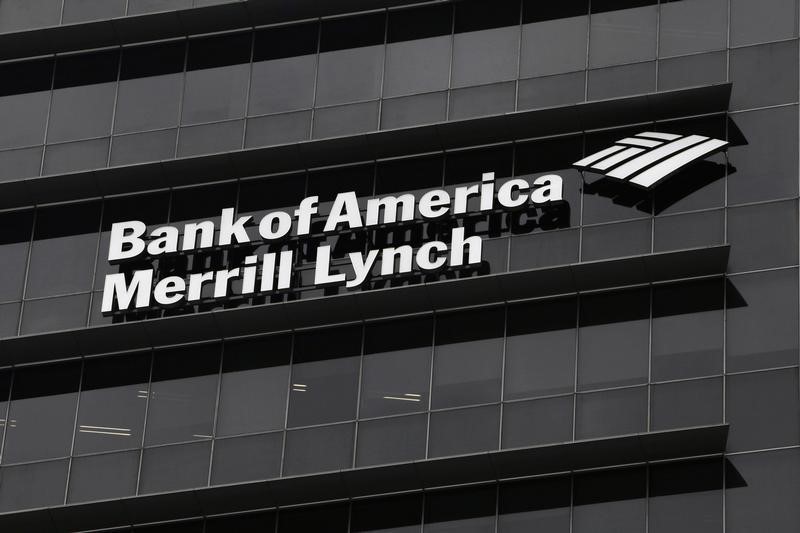In response to the Federal Reserve's anti-inflation measures initiated in 2022, Bank of America (NYSE:BAC)'s private-client wealth has seen a significant shift with over $80 billion moving into short-term Treasury funds. This move has sparked an increase in yields on short-term Treasury debt and elevated deposit yields. The one-month Treasury bill, now at around 5.3%—its highest level since 2007—has attracted investors due to its rate exceeding recent inflation rates. As a result, cash now constitutes approximately 13% of the average Bank of America private-client portfolio as of today.
The stock market, on the other hand, has been impacted negatively, with the S&P 500 still down by 13% from its record high in early 2022, prior to the Fed's interest rate hikes. Equity allocations among Bank of America clients have dropped to roughly 58% from a previous peak of 66%.
However, as cash interest continues to accumulate, investors are contemplating reinvesting these funds, potentially back into stocks considering the current monetary policy landscape. The shift into cash-like investments is already showing signs of slowing down, with net movement into short-term Treasury bill funds falling below $2 billion last week.
Looking forward, Evercore anticipates that the stock market could witness gains in the coming months due to a decelerating economy and growing expectations for potential Federal Reserve rate cuts within a year. Lower inflation and subsequent reduced interest rates generally bode well for the stock market. Defensive sectors such as communications services companies (e.g., AT&T (NYSE:T) and Verizon (NYSE:VZ)), healthcare, utilities, and consumer staples often perform well during these periods. Jacob Sonenshine suggests that this strategy could yield better returns than keeping money in banks.
This article was generated with the support of AI and reviewed by an editor. For more information see our T&C.
